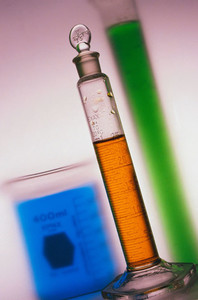What responsibility should the manufacturers of generic medicines bear for warnings about adverse effects of their medicines? Indeed, what responsibility should be borne by the original manufacturers of these drugs? What happens if an adverse effect is noticed after the drug has been in use for many years? Such questions are being pondered in the US after a recent ruling in which the Supreme Court decided it was ‘impossible’ to force generics manufacturers to update their labels with the latest warnings.
The ethics of generic drug liability
Generics/Research
|
Posted 30/11/2012
 0
Post your comment
0
Post your comment

The current situation is confused
In the US, the current legal requirement for a generic medicine is that the label should be identical to that of the brand-name originator. This prevents abuses by claims of efficacy for different conditions and lowers costs, but at the same time absolves generics manufacturers from all responsibility to make side effects known to their customers.
As predicted, after the recent ruling, dozens of failure-to-warn cases against generics drug manufacturers have been dismissed. What legal recourse should be open to patients who may be harmed by a generic drug? The subject was discussed in a recent article [1]. The authors point out that the choice of whether patients receive a brand-name or generic version of a particular medicinal product may be entirely out of their control.
Liability issues surrounding generic drugs have been a point of controversy in the US since the emergence of the generic drug industry in the 1960s. Pharmacists, not manufacturers, were the first to fear liability claims, in cases of injury from a medicine that was selected not by a physician but by the dispensing druggist, when substitution by generics became possible.
Should manufacturers take responsibility?
In the early days the liability risk gave the manufacturers an incentive to ensure that the warnings on their labels remained up to date. However, the Hatch-Waxman Act changed things: the application process linked generics’ claims of efficacy, safety and harm to those in the label of the brand-name drug. As a result, the original manufacturer became the steward of the public warnings for a growing family of bioequivalent drugs. This means that the brand-name drugmaker is responsible for updating the label based, in some cases, on data generated by generic drugs.
Editor’s comment
Please feel free to share your thoughts via email or in the comments section below. What are your views on this issue? Is the current situation on liability correct? Should generics manufacturers not be responsible for making side effects known to their customers?
Readers interested to learn more of the discussion on ethics of the use of biosimilars are invited to visit www.gabi-journal.net to view the following manuscripts published in GaBI Journal:
A bioethicist’s view of the use of biosimilars
A clinician’s view of the ethics of the use of biosimilars
Related article
Black-box safety warnings and the future of generic drug liability
Reference
1. Kesselheim AS, Avorn J, Greene JA. Risk, responsibility and generic drugs. N Engl J Med. 2012;367(18):1679-81.
Permission granted to reproduce for personal and educational use only. All other reproduction, copy, retransmission or reprinting of all or part of any ‘Content’ found on this website is strictly prohibited without the prior consent of the publisher. Contact the publisher to obtain permission before redistributing.
Most viewed articles
The best selling biotechnology drugs of 2008: the next biosimilars targets
Global biosimilars guideline development – EGA’s perspective
Related content
Japan’s drug shortage crisis: challenges and policy solutions
Saudi FDA drug approvals and GMP inspections: trend analysis
Generic medications in the Lebanese community: understanding and public perception
Community pharmacists’ understanding of generic and biosimilar drugs: Lebanon case study
Generic medications in the Lebanese community: understanding and public perception

Generics/Research Posted 23/01/2024
Community pharmacists’ understanding of generic and biosimilar drugs: Lebanon case study

Generics/Research Posted 08/09/2023
The best selling biotechnology drugs of 2008: the next biosimilars targets








Post your comment